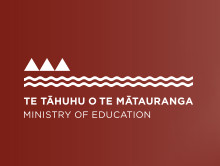He aha kai roto i te māra rīwai?
nā Rona Lawson
This narrative describes the different types of rīwai in the māra rīwai.
Ngā hononga ki te marautanga
Te Reo Māori i roto i te Marautanga o Aotearoa (wh. 59, 67, 76, 85, 94, me 102)
| Whenu | Whakarongo (Kōrero) |
| Kōeke | 2 |
| Whāinga paetae | Ka taea e te ākonga te āta whakarongo, te whakautu ngā kōrero e kōrero whānuitia ana ahakoa kei hea, kei hea. |
| Pūkenga | Ko te tāutu, ko te tīpako i ngā ariā matua o tētahi pānui whakamārama, whakamōhio rānei. |
| Whenu | Kōrero (Whakarongo) |
| Kōeke | 2 |
| Whāinga paetae | Ka taea e te ākonga te whakapuaki whakaaro ki ōna hoa, ki ngā pakeke e mōhiotia ana, ngā horopaki hoki e taunga ana te ākonga. |
| Pūkenga | Ko te whakamahi i ngā kupu me ngā kīanga kua mau i a ia, hei whakaara kaupapa, hei whakawhiti whakaaro. |
| Whenu | Pānui (Tuhituhi) |
| Kōeke | 2 |
| Whāinga paetae | Ka mārama te ākonga ki te huhua noa o ngā tuhinga poto kua tīpakona hei whakangahau, hei whakamōhio rānei i a ia. |
| Pūkenga | Ko te whakamahi, ko te whakauru i te tikanga o te kupu, ngā ture e pā ana ki te whakatakoto i te kupu me te whakamahi whakaahua e puta ai te kupu. |
| Whenu | Tuhituhi (Pānui) |
| Kōeke | 2 |
| Whāinga paetae | Ka taea e te ākonga te tuhituhi mō tētahi wā ia rā hei whanake i te reo kua mau i a ia, hei kawe hoki i ōna wheako. |
| Pūkenga | Ko te tuhi kōrero māmā e pā ana ki tāna i kite ai. |
| Whenu | Mātakitaki (Whakaatu) |
| Kōeke | 2 |
| Whāinga paetae | Ka mārama te ākonga ki te hononga o te reo ataata ki te reo ā-waha, mehemea ka puta ake i ngā horopaki e taunga ana ia. |
| Pūkenga | Ko te āhukahuka i ngā āhuatanga o te reo ataata e rite tonu ana te kitea. |
| Whenu | Whakaatu (Mātakitaki) |
| Kōeke | 2 |
| Whāinga paetae | Ka taea e te ākonga te whakaputa reo ā‑waha, reo ataata hoki e pā ana ki ngā kaupapa e taunga ana ia. |
| Pūkenga | Ko te tāutu i te pūtake o te reo ataata. |
Hei mahi
| a. | Photocopy the story (text and illustrations). Cut it up so that each chunk of text is on one piece of paper and the illustrations are on separate pieces. Working in pairs, students read and match each chunk of text to its corresponding illustration. |
| e. | Students work in pairs. Each pair has a variety of rīwai. After reading the story, the students’ task is to classify the rīwai and explain their classifications to another pair of students. |
| i. | Students work in pairs to compose a radio jingle that shows what they have learnt about the different rīwai. |
| o. | In pairs, students research the process of growing and harvesting rīwai. Students then grow, harvest, and eat their rīwai. |
| u. | Students write a report about growing and harvesting rīwai. |
Aromatawai
The students match text with illustrations.
The students explain their rīwai classifications.
The students complete a report about growing andharvesting rīwai.



